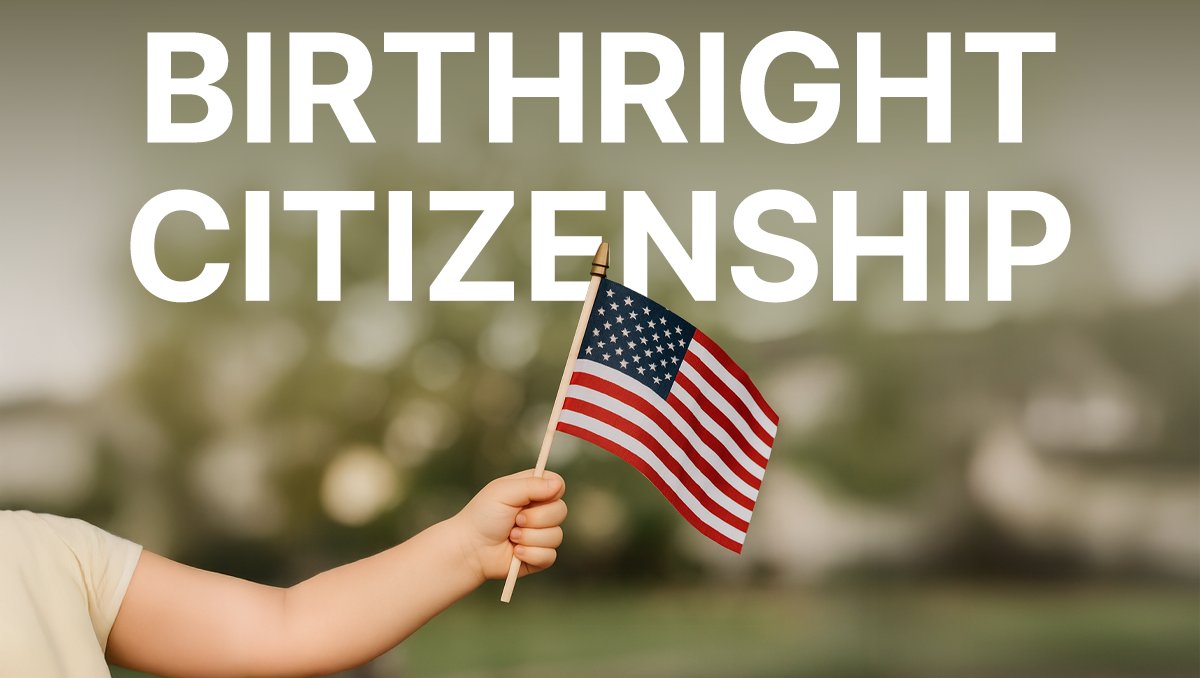Is Birthright Citizenship in the U.S. in Jeopardy? 2025 Developments

Index
- The 14th Amendment and Historical Context
- What Does Trump's Executive Order 14160 Seek to Change?
- Initial Obstacles from Federal Courts
- A Turning Point in the Class Action Lawsuit for All Children
- Which States Were at Risk?
- Ongoing Efforts by USCIS and DHS
- What Happens Next?
Birthright citizenship is a fundamental right that has been part of the U.S. Constitution for over 150 years. However, it is facing unprecedented legal challenges in 2025. President Trump's recent executive order has sparked major legal battles, raising questions about this historically secure right.
The 14th Amendment and Historical Context
Citizenship is assured by the 14th Amendment, ratified in 1868, for all persons born or naturalized in the U.S. and under its jurisdiction. This right's scope was solidified by the 1898 landmark Supreme Court decision in United States v. Wong Kim Ark, which confirmed that citizenship applies to anyone born on U.S. soil, regardless of their parents' immigration status.
However, this constitutional interpretation was challenged in 2025 under the Trump administration.
What Does Trump's Executive Order 14160 Seek to Change?
On January 20, 2025, President Donald Trump issued Executive Order 14160. The order stated that children born under the following conditions would no longer receive documentation proving U.S. citizenship, such as passports or birth certificates:
1) Where the mother is undocumented and the father is not a U.S. citizen or Green Card holder.
2) If the mother holds a non-immigrant visa (like a student visa) and the father is not a citizen or Green Card holder.
While the order does not explicitly declare these children "non-citizens," it instructs federal agencies not to issue citizenship documentation or recognize state-issued documents for these children. This effectively denies them recognition of birthright citizenship.
Initial Obstacles from Federal Courts
Before the order could take effect on February 19, 2025, it was temporarily blocked by four federal courts (in Maryland, Washington, New Hampshire, and Massachusetts).
However, these injunctions were challenged. On June 27, 2025, the Supreme Court ruled in Trump v. CASA that federal courts could only issue injunctions to protect plaintiffs directly involved in a lawsuit rather than imposing nationwide orders. This decision allowed the executive order to potentially take effect in the 27 states that had not participated in the initial lawsuits.
A Turning Point in the Class Action Lawsuit for All Children
In response, on July 10, 2025, the New Hampshire District Court presided over a significant class-action lawsuit, Barbara v. Trump, which represented "all children born or to be born in the United States." The court decisively ruled that:
- The Executive Order clearly violates the 14th Amendment.
- Birthright citizenship is constitutionally guaranteed.
- Denying citizenship documentation would cause irreparable harm to children.
- A nationwide injunction was issued, blocking the Executive Order entirely.
The Department of Justice did not appeal the decision, which effectively prevented the order's implementation nationwide.
Which States Were at Risk?
Before the injunction, 27 states, including populous ones like Florida, Texas, Georgia, Alabama, and Missouri, would have seen the order enforced, which would have blocked citizenship documentation for eligible children.
Ongoing Efforts by USCIS and DHS
U.S. Citizenship and Immigration Services (USCIS), which is part of the Department of Homeland Security (DHS), is continuing to prepare for the potential implementation of Executive Order 14160. Despite the nationwide injunction issued by the New Hampshire District Court in Barbara v. Trump, USCIS and DHS continued preparing for potential implementation scenarios.
A July 25, 2025, USCIS document titled "USCIS Implementation Plan of Executive Order 14160: Protecting the Meaning and Value of American Citizenship" reveals ongoing preparations for potential enforcement scenarios. These plans include steps such as not automatically accepting state birth certificates and examining cases involving mothers who gave birth while on student or tourist visas. However, due to court decisions, these plans are currently on hold.
What Happens Next?
The main legal case regarding the constitutionality of the executive order has not yet been finalized. The case is expected to come before the Supreme Court in 2026. If there is a change in administration or Congressional intervention during this process, the order could be completely revoked.
Do you have questions about birthright citizenship, green card applications, or other immigration matters?
The Gozel Law team is ready to guide you through every step of your immigration journey.
Email us at info@gozellaw.com or call us directly at +1 216-566-9908.
There are no comments yet. Be the first to comment!